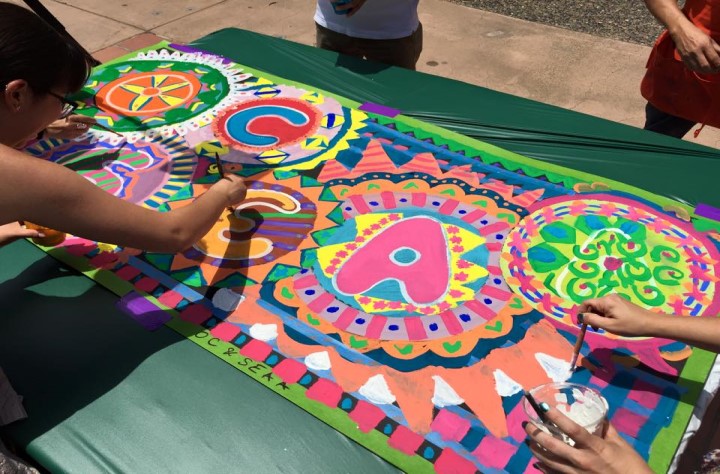In this module you will learn what is and what isn't an oral history.

The Oral History Association provides the following definition:
Oral history is a field of study and a method of gathering, preserving and interpreting the voices and memories of people, communities, and participants in past events.As a method, it involves an interview, typically between an interviewer and a “narrator” that is recorded and made available for the public. We recommend utilizing “narrator” over “interviewee” as the term “interviewee” can become confusing between the two roles. “Narrator” connotes a sense of agency for the person telling their life story. Oral histories become primary sources that supplement and enrich our collective understanding of places, communities, and events in the past.
Oral history is both the oldest type of historical inquiry, predating the written word, and one of the most modern, initiated with tape recorders in the 1940s and now using 21st-century digital technologies.Researchers have utilized oral history across a range of disciplines in the social sciences and humanities to capture experiences, perspectives, and sentiments of everyday people. When we combine the particular and situated knowledge provided by oral histories with broader contexts such as social movements, war, migration, pandemics (to name a few major events), we may arrive at more broad and nuanced awareness about the ways that people lived, the choices they made, and the agency they might have been able to exert over their lives.
Listening to and capturing the life stories of an individual is an opportunity, a privilege, and perhaps even challenge. Oral history creates an opportunity for individuals to pass on their knowledge, experiences, and memories in their own words. This transmission of cultural memory can be an empowering tool for the narrator sharing their stories, the listener/interviewer who is privy to this firsthand account, and the researchers who use the oral history to learn about the past. Oral histories can accomplish the following:
- Enrich and diversify the historical record
- Account for fuller, more comprehensive perspectives than interviews
- Empowers the narrator to tell their story and experiences
- Capture multiplicity of experiences and viewpoints in history
It is helpful to understand the differences between an oral history project and an interview project by defining their intended uses. An interview seeks to gain information, very directly, about a specific event, time, experience. They are often short and focused, driven by the interviewer’s topic. Oral histories are often defined by the intention of creating primary source materials that should be preserved and made available for a wider audience.
Oral history has existed for much longer than the professionalized form it has taken since the 1940s in the United States. Oral traditions and storytelling practices are part of the traditions of cultures around the world. The modern approach, however, rests on the work of (1) recording, (2) preserving, and (3) making available these life stories. These three aspects are crucial to the way that knowledge about underrepresented communities can be created and circulated. In its intention to address the gap in historical knowledge, oral history methods have the potential to enhance our work in building more inclusive archival collections. UCI Special Collections and Archives are committed to partnering with communities whose histories are underrepresented in archival institutions. Our principles for community-centered archives involves being:
- Attentive to inequities reflected in archives: An institution should seek to understand how communities have been misrepresented, absent, or maligned in historical documentation.
- Responsive to the community’s needs: An institution must be flexible, adaptable, and take an iterative and ethical approach to responding to how community memory and evidence is preserved, described, and made accessible. This means being willing to bend and stretch how archival work is defined to reflect what matters to the community.
- Collaborative through shared authority: In a community-centered approach, the institution focuses on shared authority, making decisions together and respecting the value, expertise, and perspective brought to the partnership by the community.
- Cognizant of the divergent priorities of communities: Community-institution partnerships must vary depending on the needs of each community, from the level of involvement by specific contributors to decisions about what archival material to collect.
Our “community-centered archives” approach can be explored further here.
 |
|
| UCI community members participate in a collaborative Circle Painting activity for the grand opening of the Orange County & Southeast Asian Archive Center in 2015. |
|